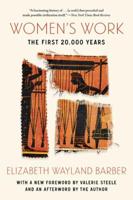Publisher's Synopsis
The eight essays collected in this volume examine the practice of gender history and its impact on our understanding of European history. Each essay takes up a major methodological or theoretical issue in feminist history and illustrates the necessity of critiquing and redefining the concepts of body, citizenship, class, and experience through historical case studies. Kathleen Canning opens the book with a new overview of the state of the art in European gender history. She considers how gender history has revised the master narratives in some fields within modern European history (such as the French Revolution) but has had a lesser impact in others (Weimar and Nazi Germany).Gender History in Practice includes two essays now regarded as classics?"Feminist History after the 'Linguistic Turn'" and "The Body as Method"-as well as new chapters on experience, citizenship, and subjectivity. Other essays in the book draw on Canning's work at the intersection of labor history, the history of the welfare state, and the history of the body, showing how the gendered "social body" was shaped in Imperial Germany. The book concludes with a pair of essays on the concepts of class and citizenship in German history, offering critical perspectives on feminist understandings of citizenship. Featuring an extensive thematic bibliography of influential works in gender history and theory that will prove invaluable to students and scholars, Gender History in Practice offers new insights into the history of Germany and Central Europe as well as a timely assessment of gender history's accomplishments and challenges.











